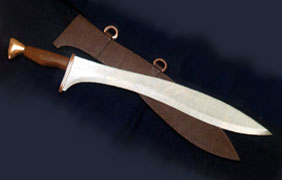Thus saith the Lord
Paul writes to his “son in the faith” in 2 Tim 3:16 –
16 All Scripture is inspired by God and profitable for teaching, for reproof, for correction, for training in righteousness
All Scripture is God-breathed (Gr. θεόπνευστος). Not only did God choose to breath the universe into existence as we read in Ps 33:6 – “By the word of the Lord the heavens were made; and all the host of them by the breath of His mouth,” but God choose to breath out Scripture. Scripture is not a product of man, but of God. 359 times do we read these words, “Thus saith the Lord.” It is God-breathed and thus carries divine authority and is profitable for the guiding of both faith and life.

Concerning faith it tells us in whom to believe, the one true God of the Bible, in what to believe, His Holy truth. Concerning life, Peter explains it best in 2 Pet 1:3 – “everything pertaining to life and godliness.” All that this life entails for the believer, everything under the sun, and more importantly walking in “the newness of life” (Rom 6:4), we have been provided with the sufficient and sustaining power to manifest godliness, holiness, and obedience to His precious Word.
The church cannot simply give lip service to this great doctrine, but must weave this great thread of truth into the fabric of church governance and living. Depending on their “diet,” it may take a church body a while to attain to a high view of Scripture. Just “think in every line you read that God is speaking to you” is what the Puritan pastor Thomas Watson would say to us.
To this day, we only transmit what we have received. The human authors received their message directly from God. Jeremiah testified, “the word of the Lord came to me” (Jer 1:4). God put His words in his mouth (v. 9). Paul did not “confer with flesh and blood” (Gal 1:16). He received his message directly from the Lord. The Apostle John was explicitly told, “what you see, write in a book and send it to the seven churches” (Rev 1:11). Though no apostles exist today, we continue that same level of commitment to transmit only what we have received. I love the practical advice Paul gives to the church at Corinth, “learn not to exceed what is written” (1 Cor 4:6).
At times we may have to “contend earnestly for the faith which was once for all handed down to the saints” (Jude 3) because of the culture we live in, but we must be faithful to declare to all, “thus saith the Lord.”
It begins in the pulpit. It is lived out in the attitudes of the people as they remind one another that our opinions or feelings are not the end-all, but it is what God has revealed in His Word that matters. Truth matters. May God instill in us a greater love and appreciation for His Word and may we be faithful to not “turn aside to the right or to the left” (Deut 5:32), but to “observe to do just as the Lord” our God has commanded us, for His glory, for His Name’s sake.
